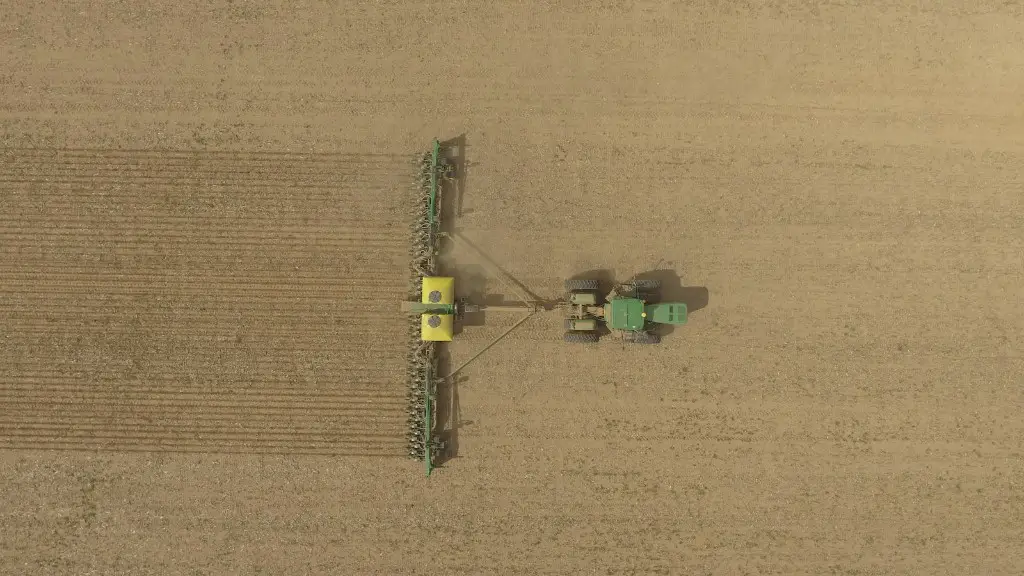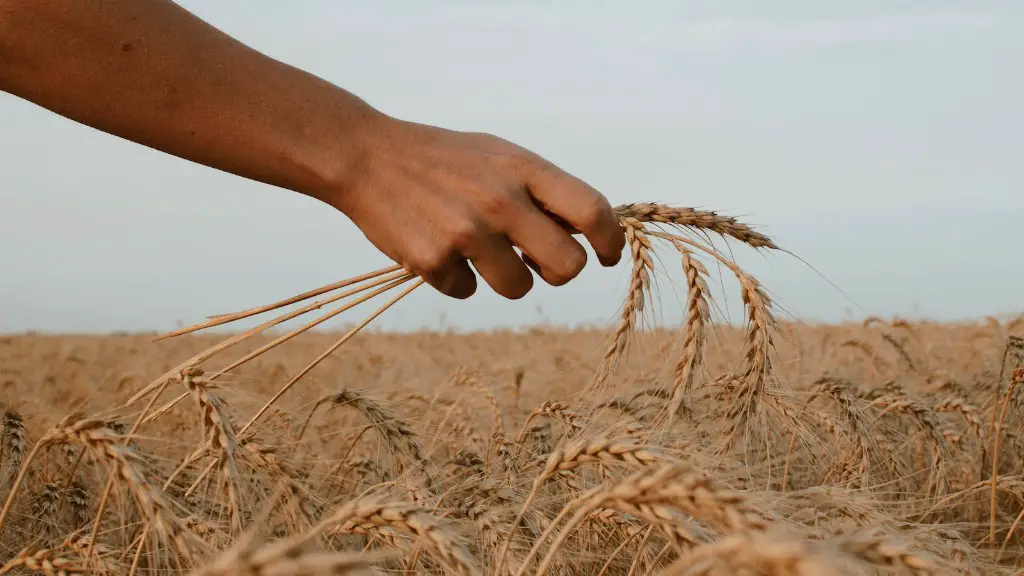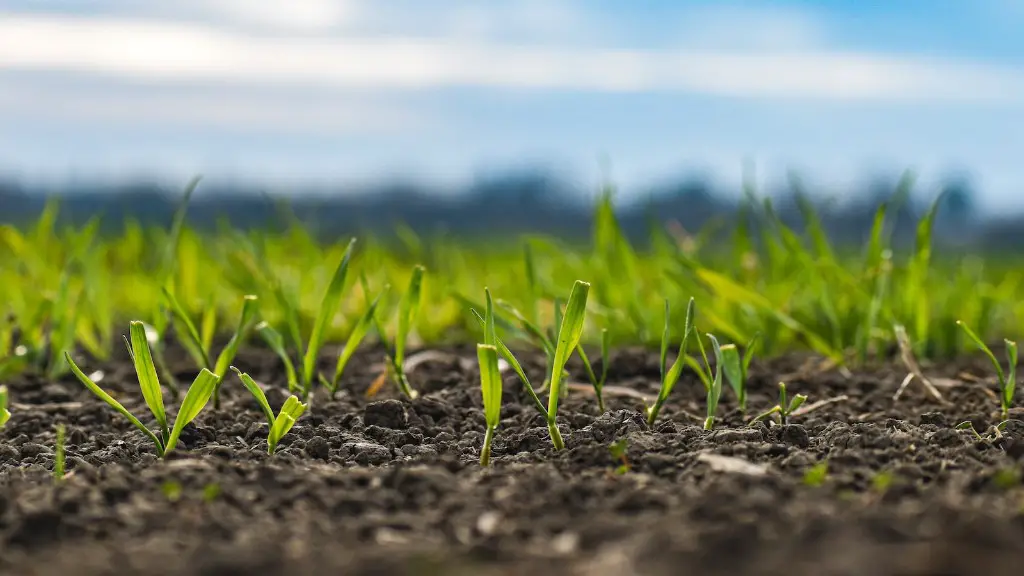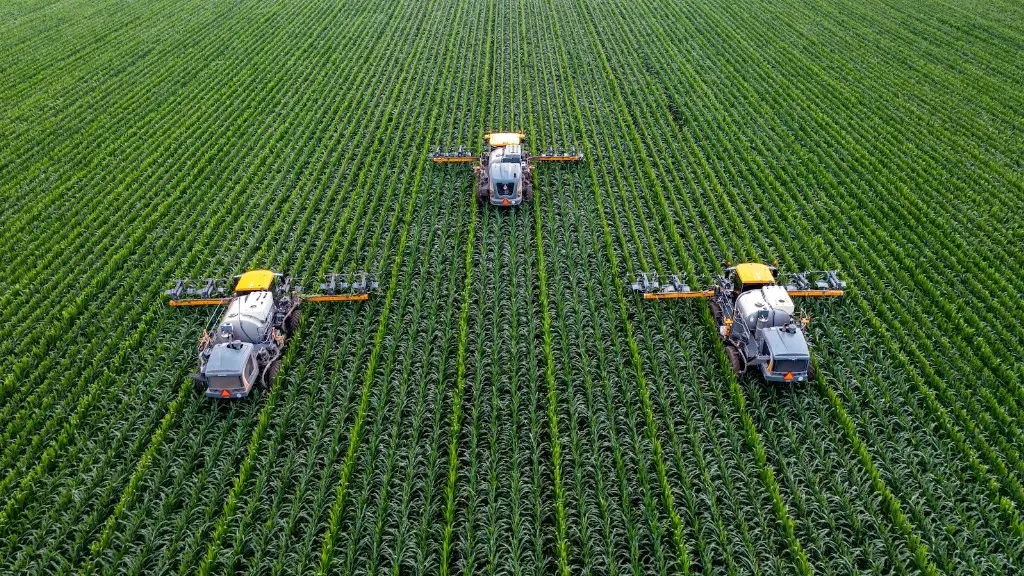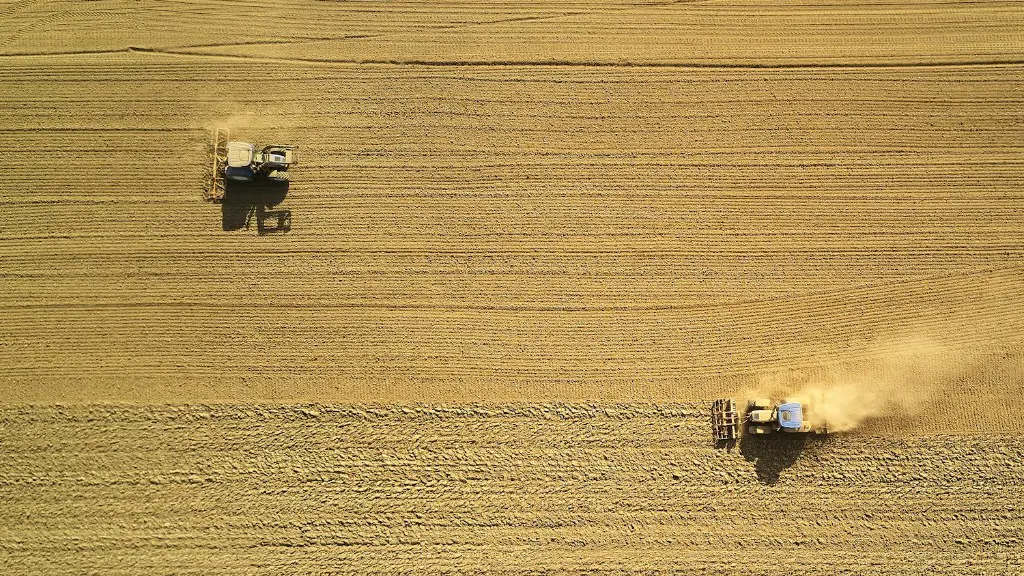Agriculture is an ancient practice that has been developed by human civilizations over thousands of years. It involves the domestication of animals and plants, and the production of food using techniques that improve crop yields and manage land and water resources. The emergence of agriculture led to a more complex and stratified social system, with a greater emphasis on the need for surplus food production, the specialization of labor, and the creation of social hierarchies and wealth. To understand why agriculture was so influential in the evolution of society, it is essential to look at how it has shaped how societies live and how economies develop.
One of the most obvious effects of agriculture is the rise of surplus food production. In hunter-gatherer societies, food was collected as needed and primarily used for subsistence. By introducing the ability to cultivate and store food, human societies were able to obtain more than enough for their immediate needs, thereby enabling long-term planning and the accumulation of wealth. This surplus allowed for the stratification of society, which meant that the abundance from crop production was no longer equally shared.
The development of agriculture also resulted in the specialization of labor. There was a need for skilled and expert labor to tend to the crops, which led to the emergence of classes of people who had specialized knowledge, skills and resources that allowed them to take better advantage of the new technology available. This created more complex divisions within society and a hierarchical structure, with some individuals having more control and power than others.
The emergence of agriculture had a major impact the economy in several ways. It enabled the development of markets and trading networks, which allowed the exchange of goods and resources among different cultures. It also led to the establishment of permanent settlements, which allowed for the development of more complex and productive modes of production. Moreover, the division of labor created by agricultural practices allowed for the creation of new technologies and the accumulation of knowledge.
The introduction of agriculture not only created a more stratified and complex society, but it also allowed for a greater level of cultural development. The surplus food enabled societies to devote themselves to activities other than just food production and the division of labor enabled people to specialize in different arts and crafts, which led to the development of more sophisticated forms of art and culture. Because of agriculture, people could devote more time to creating art, literature, music, and philosophy, which increased social complexity.
Overall, the emergence of agriculture was an essential turning point in the evolution of human civilization. It enabled the rise of surplus food production and the division of labor, which created more complex and stratified societies. It also enabled the growth of markets and trading, gave rise to more sophisticated forms of art and culture, and allowed human beings to gain control over the environment in ways that had never before been possible. Without agriculture, the development of civilizations and human knowledge would not have been possible.
Need for Trade
Agriculture was an important factor in the growth of trade networks between different cultures. It made the production of food more efficient and allowed for the development of surplus food, which provided the foundation for the growth of the economy. As a result, the need for trade grew, as the different cultures needed to access resources from other areas to support their agricultural activities. The growth of trade networks allowed for the circulation of goods and services across vast distances, leading to a more complex and stratified economic system.
Agriculture also enabled the development of complex markets and trading networks, as there was more food to trade and resources that could be exchanged among different cultures. This allowed for the development of more sophisticated production techniques and the growth of new industries. Moreover, the increased complexity of the economy enabled people to live in more stable and successful communities.
Agriculture also made it possible for societies to develop more stable and organized systems of government. Having a dependable source of food allowed peoples to form larger settlements and to focus more on producing goods for trade instead of just for subsistence. This meant that complex systems of governance with more formalized rules and regulations could be developed, which made more organized forms of government possible.
Ultimately, agriculture was essential in the development of successful and prosperous societies. It enabled the growth of surplus food, increased the complexity of the economy, and facilitated the growth of more organized and stable systems of government. As a result, it is clear why agriculture was so important in the development of more complex societies.
Differential Resources
Agriculture provided the foundation for the development of a more complex and stratified society, with a greater emphasis on the need for surplus food production and the accumulation of wealth. It allowed for the development of a hierarchy within society, with some individuals having more resources and power than others. This was due to the fact that those who had access to the agricultural technology and resources were able to take better advantage of them than those who did not.
The emergence of agriculture also resulted in the need for differentiated labor, as those with access to the technology were able to specialize in different tasks. This allowed for the creation of a new social order based on expertise, as those who had knowledge and skill in areas like crop rotation and tree management became the wealthiest and most powerful members of society. Thus, the technology of agriculture was essential in creating a more stratified and complex social hierarchy.
The growth of more complex societies also had an impact on the political realm. It enabled the establishment of central governments that had the authority and power to manage resources, and the ability to enforce laws and regulations. The development of this level of governance enabled the establishment of a more organized and larger-scale society, which was necessary for the growth of trade and commerce.
Agriculture was also essential in the development of culture, as it enabled the growth of a diverse range of arts and crafts. It allowed for the development of more sophisticated forms of literature, art and music, which allowed for the exchange of ideas between cultures, leading to a more complex and rich cultural landscape. In addition, the surplus of food enabled societies to devote more time to the development of new technologies and the accumulation of knowledge.
Overall, the emergence of agriculture was essential in the development of complex and stratified societies. It enabled the growth of surplus food production and the accumulation of wealth, created a new social order based on expertise, and enabled the rise of larger and more centralized governments. In addition, it allowed for the development of more sophisticated forms of art and culture. Without agriculture, the development of civilizations and human knowledge would not have been possible.
Environmental Impact
The introduction of agriculture had a significant impact on the environment, as it allowed humans to manage land and water resources in ways that had never been possible before. The development of crop rotation, irrigation and other agricultural techniques meant that the lands being farmed were more productive and better able to sustain larger populations. This provided a more secure source of food for people, as well as enabling them to produce more goods for a growing economy.
Agriculture also enabled people to become more efficient users of resources. By managing land and water resources, humans were able to optimize the productivity of their land. This led to the development of more complex ecosystems, with different species and habitats working together to create a more balanced and diverse environment.
Moreover, the emergence of agriculture resulted in the development of new technologies that allowed humans to further manipulate their environment. The development of plow technology, for example, allowed for increased productivity and the efficient use of resources, while the demand for labor specialization led to the establishment of tools and machines that enabled people to work in more efficient and productive ways.
Finally, agriculture enabled people to take advantage of the resources available to them and to create new sources of wealth. The development of resources such as metal tools, pottery and hulls provided new outlets for creativity and enabled more complex and intricate goods to be produced. This allowed for the growth of new industries and the accumulation of wealth, which further supported the growth of a more complex society.
Overall, the introduction of agriculture had a major impact on the environment. It enabled humans to manage their land and water resources, allowed for increased productivity and the efficient use of resources, and enabled the development of new technologies and the growth of new industries. As a result, it is clear why agriculture was so influential in the evolution of society and the development of more complex social systems.
Urbanization
The emergence of agriculture allowed for the establishment of permanent settlements, which enabled the growth of urban centers. As food production became more efficient, the need for subsistence farming decreased, allowing people to focus on producing goods for trade. This enabled the growth of cities, which created a higher level of social complexity by enabling the division of labor and the specialization of labor.
The growth of cities was also enabled by the development of new technologies and modes of production. The division of labor, for example, allowed for the development of new tools and machines that allowed for the efficient production of goods. This enabled people to produce more complex and intricate items, which resulted in the growth of new industries and a more diversified economy.
The growth of cities also allowed for the emergence of new forms of social and political organization. In cities, different classes of people emerged and roles and responsibilities became more clearly defined. This enabled the growth of more complex forms of governments, as well as more organized systems of trade and commerce.
In addition, the growth of cities allowed for the rise of new forms of art, literature and philosophy. By allowing more people to come together in cities, cultural exchange and the sharing of ideas became more commonplace. This enabled the development of more sophisticated forms of knowledge and culture, which further supported the growth of complex and more diverse societies.
Agriculture was essential in the growth of cities and the emergence of new forms of social and political organization. It enabled the growth of surplus food production and the efficient use of resources, and allowed for the emergence of new technologies and modes of production. As a result, it is clear why agriculture was so essential in the development of more complex and stratified societies.
Role of Government
The development of agriculture enabled the growth of more complex and organized forms of government. It allowed for the development of systems that had the authority and power to manage resources, enforce laws and regulations, and protect citizens. By enabling the growth of more stable and prosperous societies, agriculture provided the foundation for the growth of larger and more centralized forms of government.
As agriculture allowed for the development of more sophisticated forms of production, it enabled the growth of new forms of taxation. By imposing taxes on those who have the means to pay, governments were able to fund public works and other projects that benefited the entire society. This enabled the growth of more complex systems of governance, which further supported the growth of more complex societies.
The development of agriculture also had an impact on legal systems, as it enabled the development of laws and regulations to protect citizens and property. By allowing for the development of more sophisticated and organized forms of government, citizens were able to access rights and justice in a more efficient and effective manner. This provided a greater level of stability and security for people, which further supported the growth of a more complex society.
In conclusion, the emergence of agriculture was essential in the development of more complex and organized forms of government. It enabled the growth of surplus food production and the efficient use of resources, and allowed for the development of new technologies and modes of production. In addition, it enabled the development of more sophisticated forms of taxation and legal systems, which provided a more stable and just society. As a result, it is clear why agriculture was so important in the development of more complex societies.
